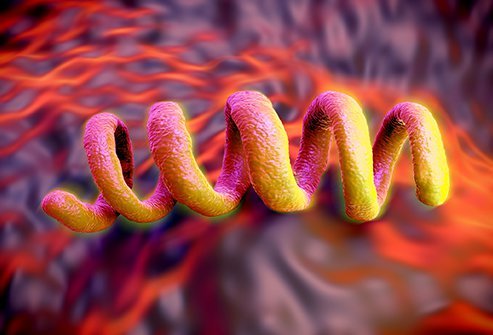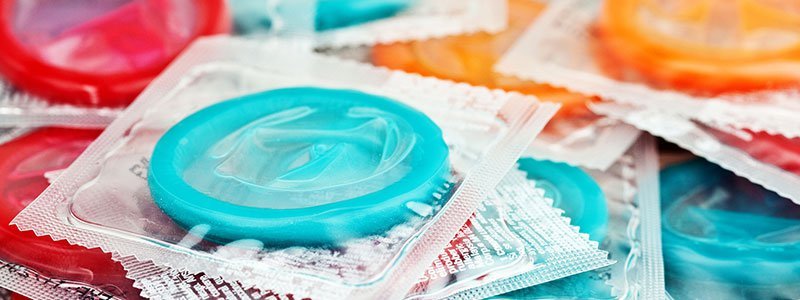
Once detected, syphilis can be treated. However, the damage already done by this disease may not be reversed. You can catch this disease again after being cured.
Syphilis is a sexually transmitted disease. You can get infected by having unprotected sex with someone who has the infection. The infection can be spread by vaginal, oral, or anal sex. Although it is a sexually transmitted disease, syphilis spreads far beyond the genitals. It can affect several vital organs and make you very sick if not treated. Once detected, syphilis can be treated with a short course of antibiotics. However, the damage already done by this disease may not be reversed. You can catch this disease again after being cured.
What is syphilis?
Syphilis is caused by bacteria named Treponema pallidum. These bacteria can be passed from person to person during unprotected vaginal, oral, or anal sex. The infection is also spread by sharing sex toys or needles for injectable drug use. Blood transfusions can also spread syphilis. However, this is very rare now since all donated blood is tested before use.
The disease can cause local symptoms in the beginning and spread all over the body later. It may also remain quiet for a long time.
Syphilis symptoms
Not all people with syphilis have symptoms. You may have such mild symptoms that you don’t realize you’re infected. This is a danger, as you might spread the disease to others.
Syphilis is divided into stages. The first stage is primary syphilis. The chief symptom is a small, painless sore or ulcer called a chancre. It is usually on the penis or vagina, around the anus, or on the lips. You could have more than one chancre. This usually lasts for two to eight weeks.
Secondary syphilis happens if the first stage is not recognized and treated. There is a reddish rash on the body, often on the palms and soles. Small skin growths, like warts, appear around the genitals and anus. You may feel tired, have headaches and joint pains, and notice your hair falling out. You may have a high fever.
These symptoms may subside when you are still infected. This is called the latent stage. It can last for years or decades and cause severe complications. These can include damage to the nerves, brain, eyes, and heart, and are called tertiary syphilis.

QUESTION
Condoms are the best protection from sexually transmitted diseases (STDs). See Answer
Syphilis complications
Some important syphilis complications include:
- Meningitis: inflammation of the coverings of the brain
- Strokes: paralysis of some parts of the body
- Numbness of body parts because of nerve affection
- Dementia: a loss of memory and thinking ability
- Visual problems and blindness
- Heart disease
- Destructive lesions of the bones and skin
Syphilis can be treated at any stage. The antibiotics are effective and will kill all syphilis bacteria. But any damage that has happened to the vital organs may remain. Treatment at early stages is best.
Syphilis in pregnancy
This is a dangerous situation. The syphilis bacteria can cross the placenta and infect the baby.
The baby may look healthy at birth. But if treatment is not begun immediately, they may develop serious problems in a few weeks.
All pregnant women are tested for syphilis, some more than once. If the test is positive, treatment with penicillin is begun immediately. It is 98% effective at preventing infection of the baby.
Latest Sexual Health News
Daily Health News
Trending on MedicineNet
Treatment of syphilis
Syphilis must be treated, even if you have no symptoms. It does not go away on its own. If you are worried about having it, the best way to know is to have yourself tested. Your doctor may ask for various tests like darkfield microscopy, polymerase chain reaction (PCR), or serological tests for syphilis.
Once they diagnose syphilis, your doctor will prescribe complete treatment. This will prevent the disease from creating serious problems later. Also, you won’t spread the infection to others. The treatment of syphilis can be tablets or an injection. You will have to take the course of tablets for two to four weeks, depending on how long you have had syphilis.
Your doctor may offer you an injection of benzathine penicillin instead of pills. This is a long-acting form of the antibiotic, which maintains adequate levels in your body for several days. In the primary or secondary syphilis stages, a single injection, given in your muscle, will cure you completely. But if you are in the tertiary or latent stage, your doctor will advise three injections at weekly intervals.
If your brain, ears, or eyes are involved, long-acting penicillin injections are not used. They do not produce high enough concentrations in these organs to cure the infection. Your doctor will prescribe a short-acting form of penicillin, which has to be given as injections every four hours or a continuous infusion into your bloodstream.
If your brain or heart are involved, your doctor may prescribe steroids with the antibiotics.
You should inform your partner(s) if you have been diagnosed with syphilis. Their physician will test them and perhaps treat them regardless of test results, for safety. You should avoid sexual contact with new partners till your treatment is complete.

SLIDESHOW
12 Preventable STDs: Pictures, Symptoms, Diagnosis, Treatment See Slideshow
Is Syphilis 100% Curable?
Syphilis is a bacterial infection. The bacteria that cause syphilis are almost always sensitive to antibiotics. Your doctor will prescribe the appropriate duration of treatment for your disease. The proper antibiotic treatment completely kills all the syphilis bacteria in your body.
If syphilis is not detected in the early stages, it spreads to many organs and damages them. Some organs frequently damaged are the eyes, ears, heart, brain, nerves, and bones. These organs may not heal completely after syphilis is treated.
Conclusion
Syphilis is a dangerous sexually transmitted disease. It is one of the few bacteria that have not developed antibiotic resistance. That means it is easy to treat once detected. A proper course of treatment kills 100% of these bacteria. But the damage done to various organs before treatment may not be cured.
Syphilis is best avoided by practicing safe sex. Use condoms when having vaginal, anal, or oral sex. A dental dam is a device to protect you during oral sex. Avoid sharing sex toys, or use a condom over them. If you use injectable drugs, don’t share needles with others. These measures will protect you from other sexually transmitted diseases also.
Subscribe to MedicineNet’s General Health Newsletter
By clicking Submit, I agree to the MedicineNet’s Terms & Conditions & Privacy Policy and understand that I may opt out of MedicineNet’s subscriptions at any time.
Medically Reviewed on 5/26/2022
References
Centers for Disease Control and Prevention: “Sexually Transmitted Infections Treatment Guidelines, 2021. Syphilis,” “Syphilis – CDC Fact Sheet (Detailed),” “Syphilis Treatment and Care.”
National Health Service: “Overview Syphilis,” “Symptoms Syphilis.”